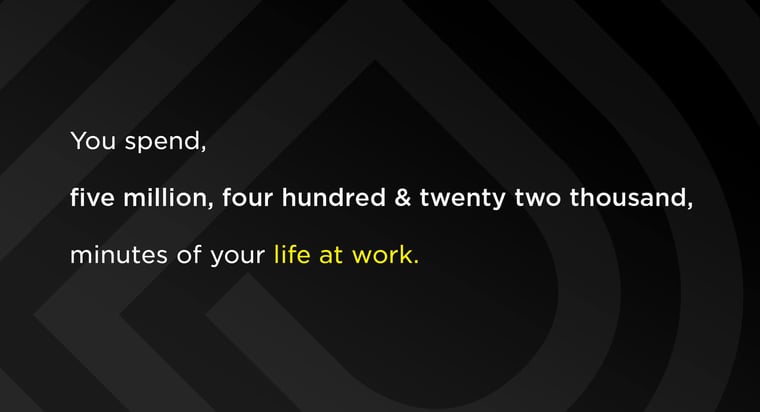
By Will Hawkins
How to improve concentration: Focus Foods 3
If you’ve got a busy day of work ahead, it’s important to stay focused.
Of course, this is often easier said than done. We’re all familiar with that pesky mid-afternoon energy crash!
However, by paying more attention to what you eat and drink during the day, you could improve your concentration levels and keep your brain at the top of its game.
While you won’t be able to change all your habits overnight, you can certainly learn how to improve concentration and start working the below advice into your daily routine.

5 ways to stay focused throughout the day
1. Be better at breakfast

You’ve heard it before, but we’ll say it again. Breakfast is the most important meal of the day, so you need to make the most of it.
That means dodging sugary cereal or nutritionally-empty white toast and choosing a breakfast that releases energy slowly throughout the day.
This will help your blood sugar level increase steadily, instead of spiking and crashing, and you’ll find it easier to stay focused.
Porridge oats or wholegrain muesli are both excellent ways to do this, or you could try our delicious homemade pancake recipes. These are quick and easy to prepare, so there’s really no reason not to give them a go.
One thing you absolutely mustn’t do is skip breakfast. Not only will this mean you’re low on energy and more likely to reach for an unhealthy snack before lunch, it’ll also cause a spike in adrenaline that’s likely to make you feel stressed. The fact that you can’t focus will now seem even more worrying.
If you weren’t making time for a healthy breakfast before, now you know why people are always going on about it!
2. Try new ways to stay hydrated

Good nutrition isn’t all about food. If you’re dehydrated, you’ll feel tired and your brain will struggle to keep up with the day’s events.
Water helps transport nutrients to your brain, which is why you need to rehydrate regularly.
Although water has it's benefits, it isn’t the most interesting drink in the world. If it were, there’d be no demand for the vast amount of soft drinks and sugary fruit juices available in shops.
Don’t be tempted by them, as they’ll cause a huge spike in your blood sugar levels that will cause an energy crash later in the day.
If you’re looking for a tasty alternative to plain old H2O, try coconut water. Its high electrolyte levels will ensure you stay well hydrated, while it also has very minimal sugar content.
Oh, and as we’re talking about drinks…
3. The caffeine conundrum

Some people regard tea and coffee as the saviour of their working day, offering a sweet caffeine hit that helps them keep their eyes open until it’s time to go home.
Others see caffeine as the work of the devil himself.
The truth, as usual, lies somewhere in the middle. Too much of anything can be bad for you, and caffeine is no exception.
Different people have different tolerances, but studies have shown that too much caffeine can cause insomnia or poor sleep, which will make it harder for you to focus during the day. Some people also find it makes them anxious.
Additionally, as caffeine is a diuretic, drinking lots of it might mean you need to take more frequent bathroom breaks, which in itself could be enough to break your concentration.
However, there’s plenty of evidence to suggest that drinking tea and coffee in moderation is absolutely fine. Caffeine is a stimulant and will increase your alertness and focus, which can be very useful in the short term. In fact, it can have a positive effect on your concentration levels and overall mood.
4. Stay on top of your blood sugar

If your blood sugar drops, you’ll know about it. You can experience symptoms such as dizziness, headaches and reduced focus.
The key to staying alert and maintaining concentration throughout the day is to control your blood sugar levels.
A good tip is to try and eat smaller meals more regularly. Take your usual lunch and separate it into two smaller portions, then space them out across the early afternoon.
It might take a while to get used to smaller portions, but the rewards will be worth it.
For those of you who like a snack, leave the crisps and chocolate alone. Not only will they cause a sugar crash, they’ll also make you fat as well as tired!
A serving of low-fat yoghurt topped with cinnamon and almonds is a healthier option that can help satisfy your cravings before the mid-afternoon crash hits.
Cinnamon has been shown to regulate blood sugar levels, while almonds are rich in vitamin E, which slows the ageing of your brain cells.
Alternatively, our healthy homemade snacks will give you the boost you need.
5. Eat more oily fish

Omega-3 fatty acids are widely believed to have a significant effect on brain health. They’ve been linked to slower mental decline and improved long and short term memory.
Frustratingly, your body doesn’t make omega-3 on its own, so you’ll need to find it from outside sources.
Your best bet is to get more oily fish in your diet. Salmon, mackerel, tuna (fresh, not tinned) and sardines are just some of the fish that are high in omega-3.
Of course, having these for lunch at work isn’t always practical - no one wants to be the person who makes the whole office smell of fish!
Instead, you can eat them at home as part of a balanced diet, and get your midday omega-3 fix from other sources such as walnuts and pecans.
Feeling energised?
Applying this knowledge to your daily routine should help you stay alert and focused all day long, without falling away as the afternoon progresses.
If you've found your own way to keep yourself at the top of your game, why not let us know in the comments below?
On the other hand, if you’re regularly finding yourself low on energy and unable to concentrate on things, talking to a doctor can help you get to the root of the problem.
Find out how you can see a doctor online in minutes and get practical advice that you'll use today.

